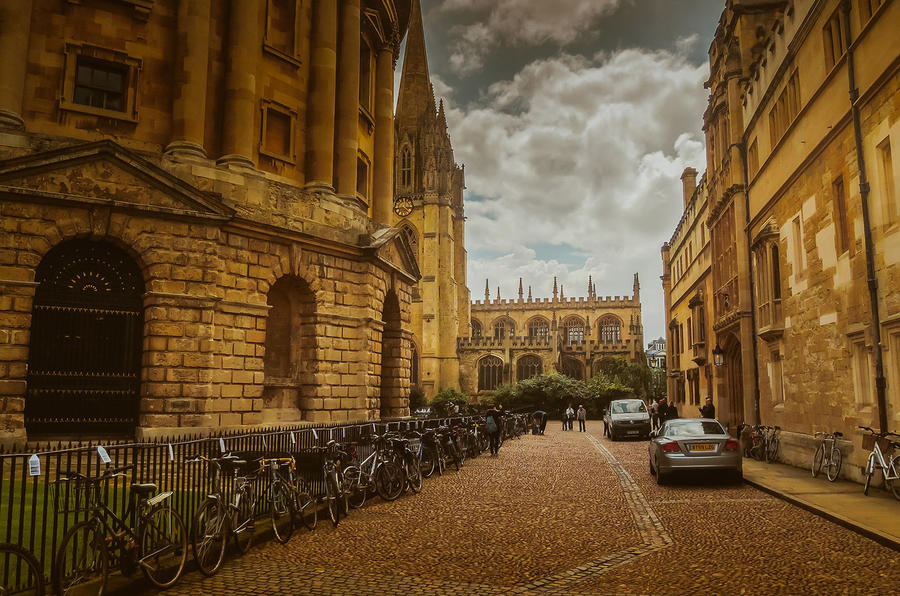Oxford is set to introduce a Zero Emission Zone, charging vehicles that produce any emissions to drive into the heart of the city centre, by the end of this year.
The scheme is designed to reduce air pollution by encouraging drivers to both switch to electric vehicles and reduce their car usage. Oxford City Council and Oxfordshire County Council have published draft proposals of the scheme, which has been in development since 2017 and is planned to come into force this December.
When the scheme was first proposed, the two councils suggested that CO2-emitting cars could be banned entirely from the city centre. Instead, a scheme similar to London's Ultra Low Emission Zone is set to be adopted, with non-electric vehicles charged £10 per day to enter the zone between 7AM and 7PM.
The councils say the scheme would cut CO2 emissions, improving the health of both city centre residents and those in the wider Oxfordshire area.
Tom Hayes, Oxford City Council cabinet member for Zero Carbon Oxford, said the Zero Emission Zone would "help make 2020 the year we make a game-changing difference", adding that "our medieval city is leading the electric vehicle revolution."
The charges would initially apply to a small Red Zone, comprising a handful of streets in the city centre, with exemptions for disabled drivers and vehicles registered to businesses within the zone. Residents of the zone would be given a 90% discount.
From 1 December 2024, the charge would rise to £20 per day, with vehicles registered to businesses paying £10 per day. Residents would continue to benefit from the 90% discount until 2030, when they would be forced to pay the full charge.
Vehicles that meet the Government’s current Plug-in Car Grant criteria – electric cars, hydrogen fuel cell cars and plug-in hybrids capable of at least 70 miles of zero-emissions running – would be exempt from the charges.
As well as the Red Zone, a Green Zone covering the rest of the city centre would be introduced in 2021 or 2022. It would operate with separate requirements that are still being determined but are likely to include charges for vehicles that don’t meet Euro 6 diesel or Euro 4 petrol emissions standards. Discounts would be given to residents.
The operators of local buses and taxis that run within the zone have already agreed timelines with the councils to switch to zero-emissions fleets, so such vehicles wouldn't be charged.









Join the debate
Add your comment
Ban them altogether
They should ban them altogether.
Oxford has decent public transport, but they charge for park&ride which makes people prefer to drive.
I'm glad i live in Oxford,
I'm glad i live in Oxford, one of the few forward-thinking city councils in the UK.
Elsewhere this would have been blocked by voices complaining about businesses being hit etc. etc. but they along with transport firms were consulted and have agreed to transition plans to meet zero emission targets.
If you listen to the nay-sayers you end up going backwards.
Well, I live in Oxford too
In the 2017 article, George Street is identified as the street with the worst air pollution. This road features bus stops on both sides all along its length and the main bus depot (Gloucester Green). In fact private cars can only get half way along its length to allow access to a couple of cul-de-sacs, so the traffic is really only the 'local residents and businesses' that will get the 90% discount. If there is any reduction in the pollution it will come from the buses and taxis.
Have you read the strategy
The red-zone is central but the green zone that comes into place after 2021 will spread wider.
Best move out if you're that against it.
Yes, it's a joke. Buses to
Fortunately, I live outside the green zone and hardly ever need to drive inside it. In fact I only had to drive inside that zone once last year, to collect a parcel from the Post Office.
I'm not against reducing emissions, in fact I support that, but like so many of Oxford City Council's ideas they fail to address the real issues.
michael knight wrote:
Yep, great answer, all but faggots and transgender eco mental snowflake remoaner/rejoiners should leave the city of light and bu99ery.
TS7 wrote:
Gammon alert!!!
I disagree, this is a
Forward thinking city
A great plan which should be in place here in London. However I disagree with a £10 charge it should be just a flat ban on petrol/diesel vehicles. British cities were not designed around thr car and cannot cope with volumes of vehicles in the 21st century. It's the best way to stop appalling levels of pollution in the UK.
The government should use the 'Brexit Bonus' to invest heavily in public transport. Which obviously won't happen as we are hemorrhaging billions.